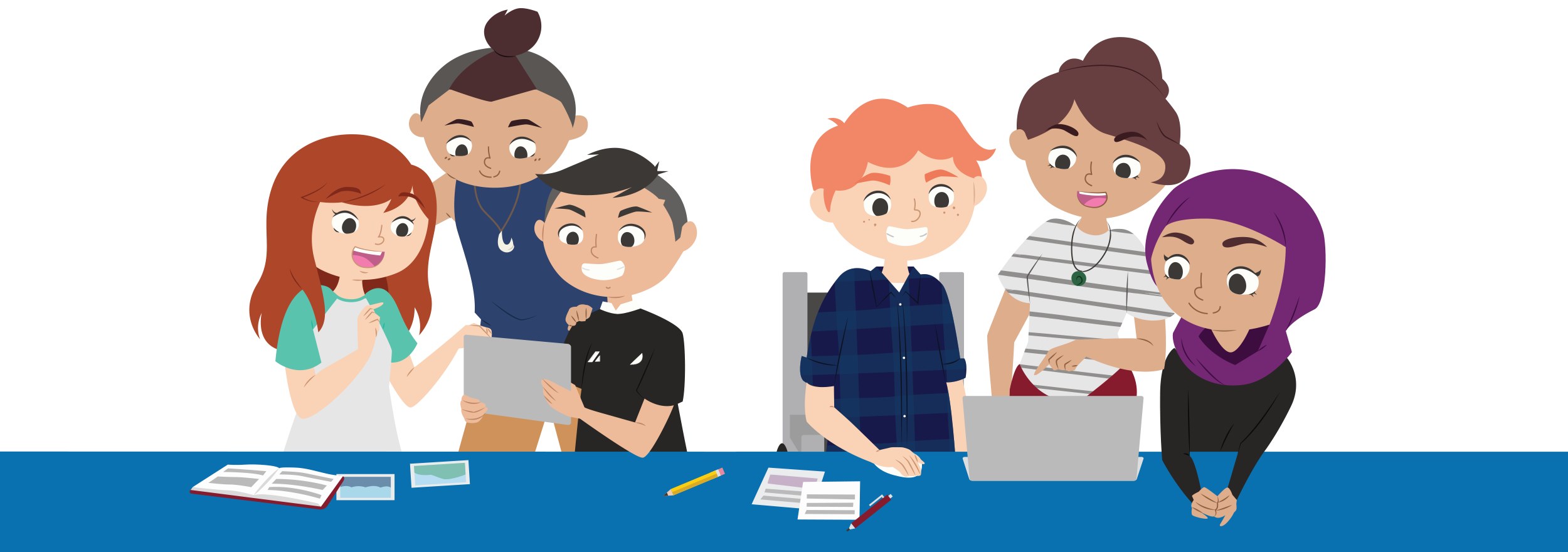Finding a place in Aotearoa New Zealand
Since the 1700s, new people have immigrated to Aotearoa. Some came in search of a better way of life or because their country was no longer safe. Newcomers could experience racism and discrimination. They also helped shape New Zealand as a country.
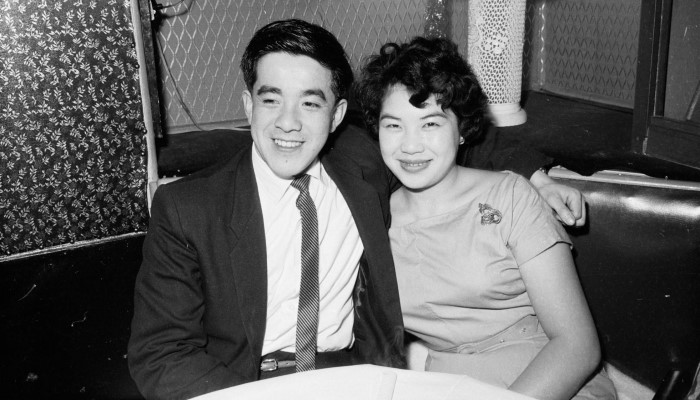
Image: The Hi Diddle Griddle Restaurant, Karangahape Road, 1960 by Rykenberg Photography on Auckland Libraries Heritage Collections.
Keywords
Here is a list of some keywords of people from different cultures, groups and communities that have made cities like Tāmaki Makaurau their home in Aotearoa. Use this list when searching the collections and websites in this entry.
Chinese: People from China began immigrating to New Zealand in the mid-1800s. In 1881 the government imposed a poll tax to reduce the number of Chinese people coming to New Zealand.
Dalmatian: People from the Dalmatian coast of Croatia arrived in New Zealand in the 1860s. Many worked as kauri gum diggers in Northland. Yugoslavs and Croatians also come from this part of Europe.
Disabled people: These are persons who have some kind of physical or mental impairment (weakness, loss) that has an impact on their ability to live a normal life. For example, this includes the Deaf Community and blind people, and people with health conditions such as cerebral palsy, and Down syndrome.
English, Irish, and Scottish: The largest early groups of European settlers to New Zealand were from countries in the United Kingdom, like England and Scotland, and from Ireland.
Faith-based communities: A community of people of the same religious faith or belief. Christianity, Rātana Church, Buddhism, Islam, Hinduism, Judaism and Sikhism are some examples.
Indian: Indians arrived in New Zealand in the late 1800s and early 1900s. Many came from the Punjab and Gujarat regions of India.
Jewish: Jews began arriving in New Zealand during the 1800s. Many of them were gold seekers in the 1860s. They came from Poland and Germany looking for a peaceful life in New Zealand.
Pasifika: A collective name for people from the Pacific Islands which includes Cook Islander, Fijian, Kiribati, Niuean, Samoan, Tokelau, Tongan, and Tuvalu.
Refugees: People who have been driven out of their countries or left their countries because of war or persecution (ill-treatment). New Zealand has refugees from Uganda, Somalia, Iran, Iraq, Afghanistan, and Cambodia.
Tips: Before searching it can be useful to come up with a list of words to use. These are sometimes called keywords or search words. They can be the name of a person, place, or event you are researching. You can leave out small words like ‘the’ and ‘of’ and just choose the main ones, eg 'Refugees'. We can always change our keywords or add more if we need to.
Tips: Also keep in mind that there are different names or spellings for words. Or they could have changed over time.
Auckland resources
Here are some collections from Auckland Libraries and other reliable Auckland-based museums and heritage websites. They will help you find books and information on various cultures that have made Auckland and New Zealand their home, their contribution to society and the challenges they have faced.
Auckland Libraries Catalogue
This catalogue from Auckland Libraries will help find books on Aotearoa New Zealand and Auckland's histories.
Search the catalogue using keywords like ‘Scottish’ or 'Chinese’.
You can get fewer results by using the filters under Refine by.
Select a book that interests you.
Go down the page to Edition information to check if the book can be borrowed or if it’s for In library use only.
Look further down the page to Related Resources to find other titles related to this search.
If you have an Auckland Libraries library card you can request the item to be sent to you at your local library.
Tips: If the status of the book is 'In library use only', it means the book can only be used in the library and can't be taken home. In this case, you will need to fill out a form or speak to a librarian about reading the book in the library.
Tips: You will find lots of books that have been written over 50 years ago. While they are good sources of information, we need to remember the context and time when they were written.
Heritage et AL
The Heritage eg AL blog is written by librarians and is a useful way to find information about Auckland Libraries heritage collections.
You can browse Labels from the list of items on the left of the page.
For more direct results, select the search icon at the top of the page, and enter your keywords.
For example, the keyword 'Chinese' will help find the blogs The Poll Tax in New Zealand and The history of Chinese family businesses in Auckland and more.
Many of the blog entries have links to other useful library resources such as books and podcasts.
Tips: Blogs can be good for looking at how things have continued or changed over time. Remember, stories can be told in different ways so it’s helpful to look at multiple information sources to find different perspectives.
Kura — Photographs
Browse photographs, illustrations and works of art from the 1800s to today.
Find Collection Name from the list of items on the left, then look for the Dalmatian Archive and Museum Collection and Pasifika Festival Collection.
Or use the search box to enter the keyword 'refugees' or 'Indians' to find a range of photos on the topics.
Tips: Always remember to check the copyright or usage rights of images. This will tell you if you need permission to use the image, and how to attribute the image.
Kura — Oral History
Find collections of oral history interviews, recorded talks and events.
Browse the oral histories using the filters on the left of the page, or search with your keywords.
You can also look down the page to find Sarah Oliver, talk on Auckland's Jewish community in the 19th century, 2022.
Go to Listen to the interview to access the talk.
You will also notice the story of Auckland's disabled community leaders project.
This oral history is not available online, so fill up the form that comes with the oral history item you want to listen to or watch, then select Submit form. The library will get in touch with you when they have the item ready for you to use.
Tips: Primary sources like oral histories are useful for hearing first-hand accounts, gathering information about people’s values, attitudes and experiences about a topic or event from that time. Keep in mind that they may not fairly show a wide range of views or experiences.
Ngā Pātaka Kōrero - Auckland Libraries
This is the SoundCloud page for the Auckland Libraries podcast. You can listen to author talks, events, and commentary from the curatorial teams on Auckland's treasured collections.
Go to Playlists, then look down the page to find The Panthers Podcast.
This is a series on the history of the Polynesian Panthers in Aotearoa New Zealand.
This will take longer but you can also browse Playlists to discover hidden gems such as this story of an Irish horse bus driver in 1881.
Kura — Local History
This is a collection of local history essays, including Dalmatian Genealogical & Historical Society resources.
Look for Collection Name from the menu on the left.
Select Dalmatian archive and museum to view Fishing Industry and Oratia: Dallies in the Valley.
These are some examples of the lives and occupations of Dalmatians in Auckland.
Tips: Make sure to read the 'Usage Rights' or check with Auckland Libraries for the use of these items as copyright rules may apply.
Auckland War Memorial Museum - YouTube
This is the official YouTube channel of the Auckland War Memorial Museum, one of Aotearoa New Zealand’s finest heritage museums. There are lots of videos under various section headings.
Go down the page to Pacific.
Watch The Future of the Tuvaluan Language or Preserving our Tongan Language.
The videos are about the challenges faced by Pacific language speakers, and the preservation of Pasifika languages in Aotearoa.
Tips: You will find a huge selection of videos on YouTube. We recommend you view videos from reliable sources like National Geographic, History Channel, BBC etc. These are official channels from organisations.
AHI Auckland History Initiative
The Auckland History Initiative from the University of Auckland supports and promotes the histories of Tāmaki Makaurau.
Search for 'Dalmatian'.
You will notice lots of cultural topics like A Home in Auckland Central: Introducing Auckland's Dalmatian and a talk by Hazel Petrie about Chinese, Indian, Lebanese, & Dalmatian people arriving in Auckland, 1890-1920s.
Try searching for 'Jewish' to find Setting-up Auckland's Jewish Community.
Or search for 'Pacific' to find Flynn McGregor-Sumpter's research on Pacific Immigrants in the ‘Greater Ponsonby’ region, and their way of keeping their identity strong in a new country.
MOTAT (Museum of Transport and Technology)
Based in Auckland, this is New Zealand’s largest transport and technology museum. Visitors can explore and discover the achievements that have helped shape New Zealand’s history.
Use the tab called Collections & Stories to find Stories.
Then look down the page to find Māori and Pasifika Superstars of STEAM (Science, Technology, Engineering, Arts and Maths).
You will find the names of Pasifika people in STEAM careers in Aotearoa.
Also, read the stories Richard Pearce and his remarkable hybrid plane and Sir Ernest Rutherford — The Father of Nuclear Physics.
Both Richard Pearce and Ernest Rutherford were children of immigrant parents.
Tips: Museums preserve and exhibit important cultural, artistic, historical or scientific artefacts. Some store personal collections. A lot of them have online collections and articles based on these collections. They are great places to visit.
Remuera Heritage
The Remuera Heritage was established in 2007 to recognise, protect, and preserve Remuera's natural and cultural heritage.
Go to Stories.
The tab People from the top of the page will lead to information on lots of immigrants who contributedto the development of Remuera.
Read about Many Jane Milne from Ireland, and Henry Kulka from Czechia (Czech Republic).
Then go to the tab called Exhibition to check out Chinese Fruiterers in Remuera.
Tips: Local heritage sites are a great way of learning about the local history and culture of a particular area as they have stories that connect the past with the present.
General New Zealand resources
The websites below belong to government agencies, national museums, archives, libraries, and other reliable sources. They will help you find information on the part they play in Aotearoa New Zealand, including their challenges and experiences.
Te Ara: The Encyclopedia of New Zealand
Te Ara is an excellent starting point for all questions about Aotearoa New Zealand. If we look down to the bottom of the page, we can see that the website belongs to the Ministry for Culture & Heritage, so the information is well-researched and reliable.
Try Topics and look for Immigrant groups.
Find ethnicities such as Africans, Cook Islanders and Koreans who immigrated to New Zealand, how they helped develop New Zealand, and how they have retained their identity.
Or visit the Sitemap to find the section Origins and arrivals. Read about refugees, immigration history and immigration rules against non-British immigration.
Or from the Sitemap, find the section Social Connections to learn about Community organisations and Religions such as Christianity, Buddhism and Islam in Aotearoa.
This section also looks at Disability and disability organisations in New Zealand.
NZ History
NZ History is another great website for information about Aotearoa New Zealand. The website belongs to the Ministry for Culture & Heritage, so the information is well-researched and reliable.
Look for the section called Culture and Society, then go down the page to Immigration.
Explore the section to find British & Irish immigration, and The dawn raids: causes, impacts and legacy.
Tips: We like sites like this because they’re reliable. You can tell because of their web address – they have either .govt or .ac, meaning they are from government or educational organisations. They’re also New Zealand sites, so relevant for us.
Ngā Taonga Sound & Vision
Funded by the Ministry for Culture and Heritage, Ngā Taonga Sound & Vision is New Zealand’s audio-visual archive. Their collection includes film and television, radio and sound recordings, props, posters and more from over 120 years of New Zealand’s history.
Try different keywords like 'immigrants', 'refugees' and 'religion'.
Make sure to select View or listen online now after each search as not all items can be viewed online.
Read some of the results like Dutch immigration agreement axed, Pacific solution - from Afghanistan to Aotearoa and My God. Series 3. Episode 2. Brent Smith.
Tips: Websites that have .org or .net in the address can have good information, but you need to assess how reliable it is. Check the About us link on the website, if you can find one. That can tell you what the organisation’s mission and values are.
NZ On Screen
NZ On Screen is a collection of television, film, music videos and web series from the past to today. It is managed by the Digital Media Trust and funded by New Zealand On Air.
Use the search word 'immigrant' to find An Immigrant Nation.
This set of documentaries has personal stories and experiences of people from countries like Germany, Sri Lanka, and Samoa.
Or search Collections to find The Pacific Collection.
This collection has stories of the Pacific identity in Aotearoa along with their special relationship with Māori.
If you look under Documentary you will find Dawn Raids.
This is about the challenges faced by Pacific Peoples in the 1970s.
Tips: Websites that have .com or .co in the address can have good information, but you need to assess how reliable it is. Check the Our story link on the website, if you can find one. That can tell you what the company’s mission and values are.
DigitalNZ
DigitalNZ searches online resources from New Zealand libraries, museums, universities and government sites in one place. It groups results by the type of information and has lots of primary sources.
Begin a search using the search words 'Deaf community'.
Look at the images, videos and articles on the page of results.
For example, look at the images of Students from Van Asch Deaf Education Centre perform national anthem or watch the video My Perfect Family: Attitude.
The video is about families living with disabled people.
Museum of New Zealand | Te Papa Tongarewa
New Zealand's national museum located in Wellington has an online collection of images and articles on various topics such as dinosaurs, art, zoology, history, Māori and Pacific cultures and war.
Find Discover the collection from the top of the page to select Read, watch, play.
This section has pictures, videos and articles on New Zealand's history.
Look down the page to find the sections on Chinese Languages in Aotearoa, Tokelau, Samoa and Tonga.
Each section is about cultural identity and being part of Aotearoa New Zealand.
Whaikaha | Ministry of Disabled People
The work of this department is to work in partnership with the disability community, Māori and the Government to find ways for a more independent future for disabled people.
Go to About us to understand more about the work of this government department.
Use the other tabs to find out the plans and programmes in place to help the disabled community in Aotearoa New Zealand.
Tips: New Zealand's public service is made up different government departments such as the Ministry of Education, Ministry of Health, etc. They provide the government with advice on a sector (health, education) and deliver services to the people of the nation. Each department has its own minister.
Books
You can also visit your local public library for books on Auckland and Aotearoa New Zealand histories. Listed below are a few titles to help you with your search for books on this topic:
Shifting centres: women and migration in New Zealand history edited by Lyndon Fraser and Katie Pickles
Sons of the soil: Chinese market gardeners in New Zealand = Huangtu zisi by Lily Lee & Ruth Lam
Tangata o le moana: New Zealand and the people of the Pacific edited by Sean Mallon, Kolokesa Māhina-Tuai & Damon Salesa
Indian settlers: the story of a New Zealand South Asian community by Jacqueline Leckie
Jewish lives in New Zealand: a history edited by Leonard Bell & Diana Morrow
A lucky landing: the story of the Irish in New Zealand by Anna Rogers
Grey's folly: a history of Howick, Pakuranga, Bucklands-Eastern Beaches, East Tamaki, Whitford, Beachlands and Maraetai by Alan La Roche
SCIS no: 5496692
More about Auckland
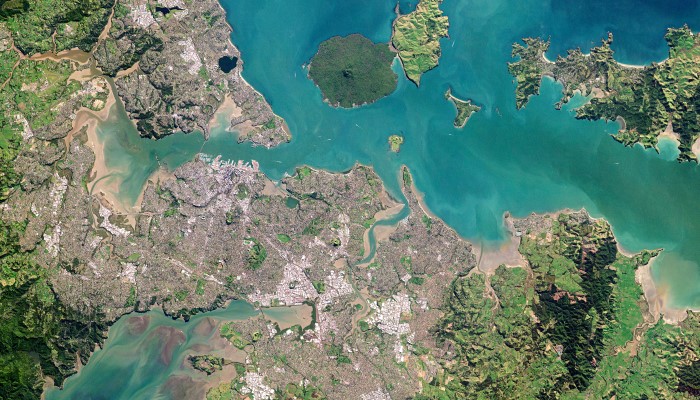
Local iwi
There are many iwi with ancestral relationships to Tāmaki Makaurau. This page lists iwi and websites which have information about their histories.
Learn about local iwi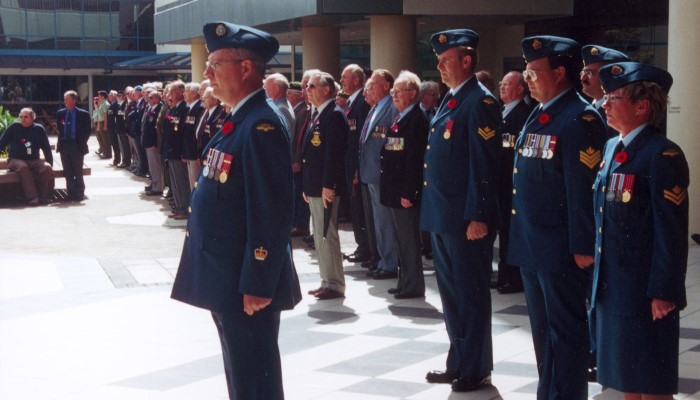
Changing views on conflict
This entry recommends resources to find out how New Zealand's involvement and views of conflict have changed over time, and how wars are commemorated. It also looks at New Zealand's work with the United Nations and current ideas of national identity.
Learn about changing views on conflict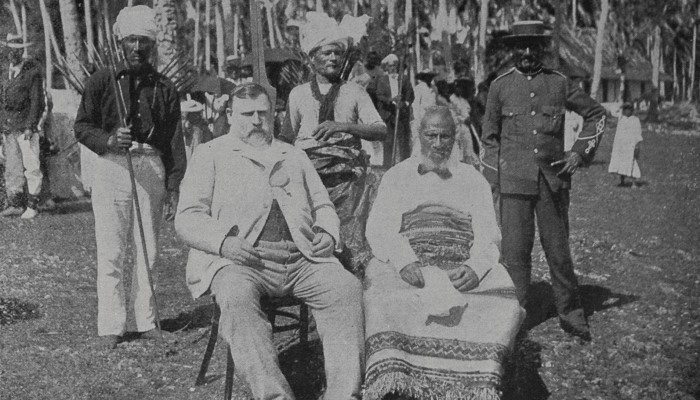
Colonial power in the Pacific
This entry has collections and websites to help explore the history of New Zealand's presence and colonial power in the Pacific. It has examples of the rise of independent Pacific nations and how they sustained their culture and presence in the Pacific.
Learn about colonial power in the Pacific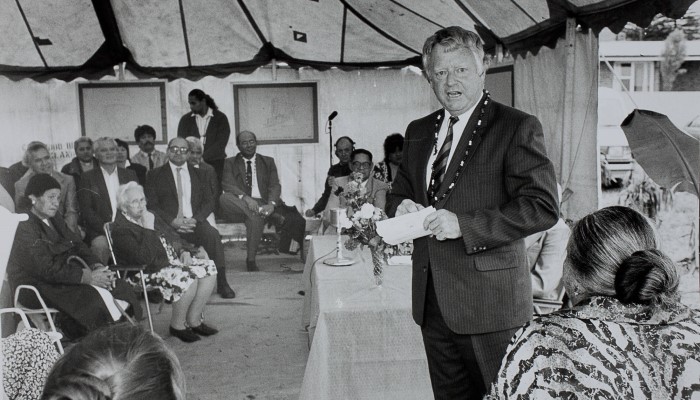
Decolonising the Pacific
This entry will help you find the best websites and collections to explore the decolonisation of the Pacific, including Aotearoa New Zealand's continued interests in the region.
Learn about decolonising the Pacific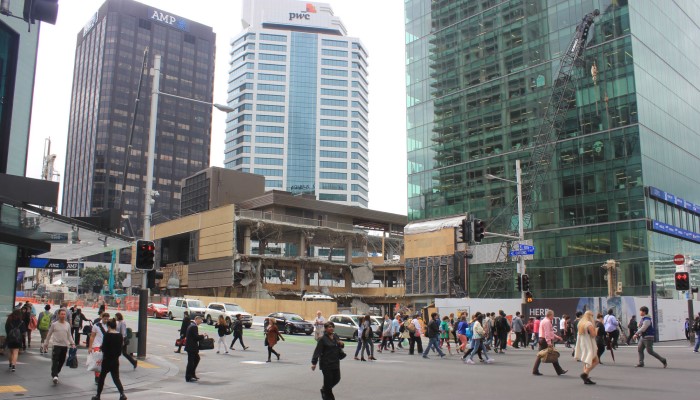
Economic independence and vulnerability
This entry will help you find information about the history behind Auckland's economic progress and independence, and the factors that impacted it.
Learn about economic independence and vulnerability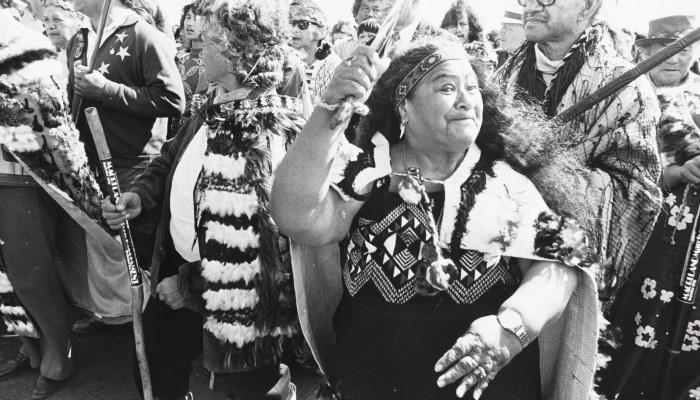
Mana in Māori society
This entry has websites to help you understand the different meanings of mana and its importance in political, social and traditional relationships in Māori society.
Learn about mana in Māori society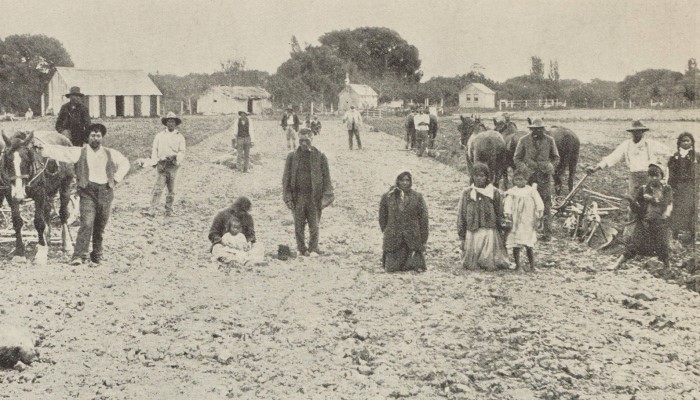
Māori economy: opportunities and challenges
This entry will help you find the best websites and databases that explore the history and development of the Māori economy including the challenges Māori faced from the New Zealand Wars, land sales and decisions made by the Native Land Court.
Learn about māori economy: opportunities and challenges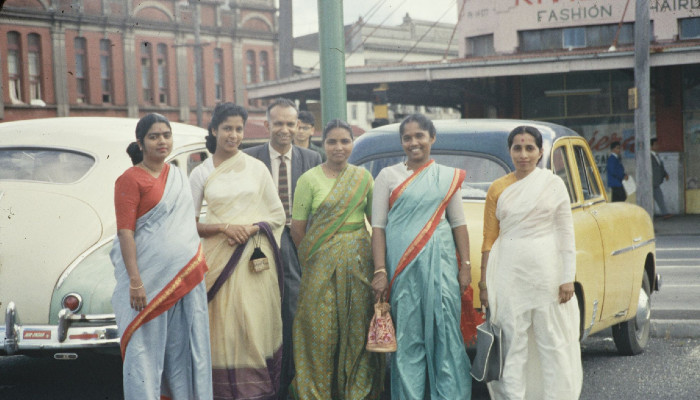
Peopling the colony: inclusion and exclusion
This entry recommends places to find information about the history of immigration to Tāmaki Makaurau and New Zealand. This includes immigration laws and changes, the role of Māori in immigration, and the government's attempt to set right past injustices.
Learn about peopling the colony: inclusion and exclusion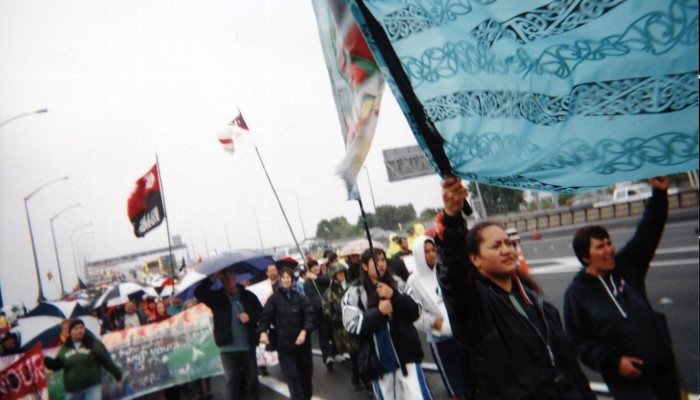
Sovereignty vs rangatiratanga: wars, laws and policies
This entry recommends websites where you can find information about the impacts of land laws on Māori, the New Zealand Wars, and attempts by Māori to find justice and build a relationship with the Crown.
Learn about sovereignty vs rangatiratanga: wars, laws and policies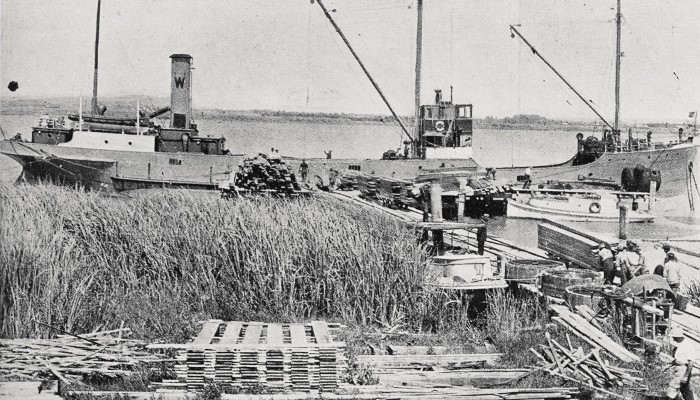
Technology and economic development
This entry will help you understand how advances in technology and land acquisition developed Auckland's economy but greatly impacted Māori and their economy.
Learn about technology and economic development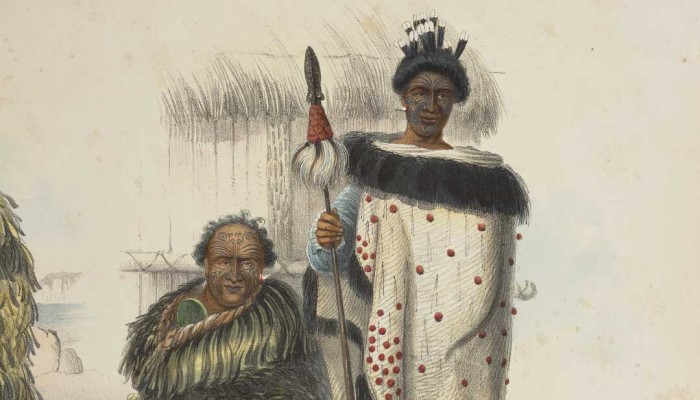
Te Tiriti o Waitangi
This entry recommends websites and collections to find information about He Whakaputanga o te Rangatiratanga o Nu Tireni | The Declaration of Independence and the Treaty of Waitangi | Te Tiriti o Waitangi, their significance, and the signatories.
Learn about te Tiriti o Waitangi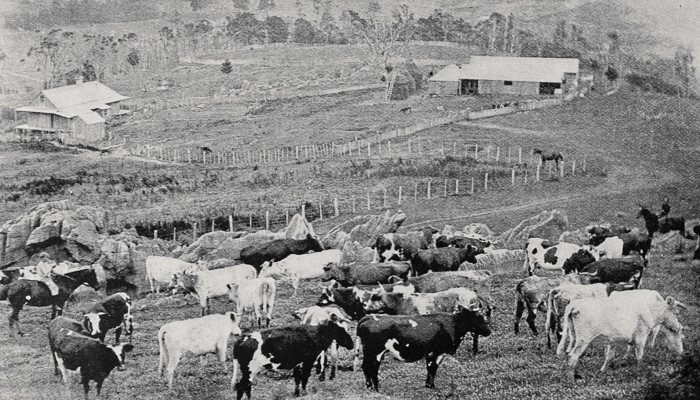
Transforming environments
This entry explores changes made by settlers to Aotearoa's natural environment, their naming of places and features, and efforts to conserve and restore its natural beauty.
Learn about transforming environments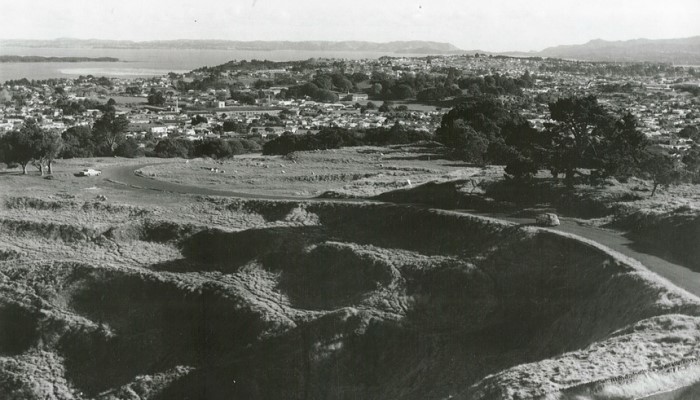
Transforming te taiao
This entry will help you find information on the changes made to the environment by pre-European Māori, and their care and connections to te taiao (the natural world).
Learn about transforming te taiao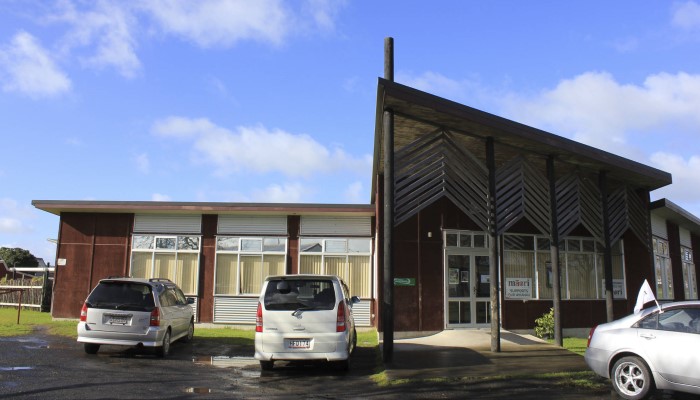
Urbanisation and being Māori
This entry will help you find information about Māori migration to cities, their challenges, and what this meant for their identity as Māori. You will also find information about some protests Māori were involved in to challenge political and social ideas.
Learn about urbanisation and being Māori
